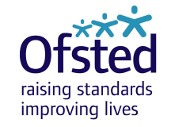Ofsted and the Care Quality Commission (CQC) have today published a report looking at how education, health and care partners work together to commission and oversee alternative provision (AP).
- Good registered AP provides high-quality education, but too many children’s experiences are negative.
- A lack of national standards around the commissioning and oversight of AP is leading to inconsistent outcomes for children and young people.
- Local areas are unclear on roles and responsibilities, leading to an inconsistent picture nationally.
The report finds that the lack of national standards and clarity around who is responsible for AP commissioning and oversight are leading to inconsistent outcomes for children and young people.
AP is commissioned by schools or local authorities when pupils have been excluded or cannot attend mainstream school, for example due to complex medical, social or emotional needs. Currently, not all AP needs to be registered or inspected, meaning there is lack of oversight of children and young people in unregistered AP.

